Interview: Claire Burman & Nellie Eden, Babyface
By Something CuratedClaire Burman and Nellie Eden, of the all-female collective Babyface, created a unique platform based on the power of networking. For the last four years, they have been connecting over 400 creative women of all disciplines and backgrounds with diverse brands. Something Curated spoke with the two founders to discover more about their agency and future aspirations.
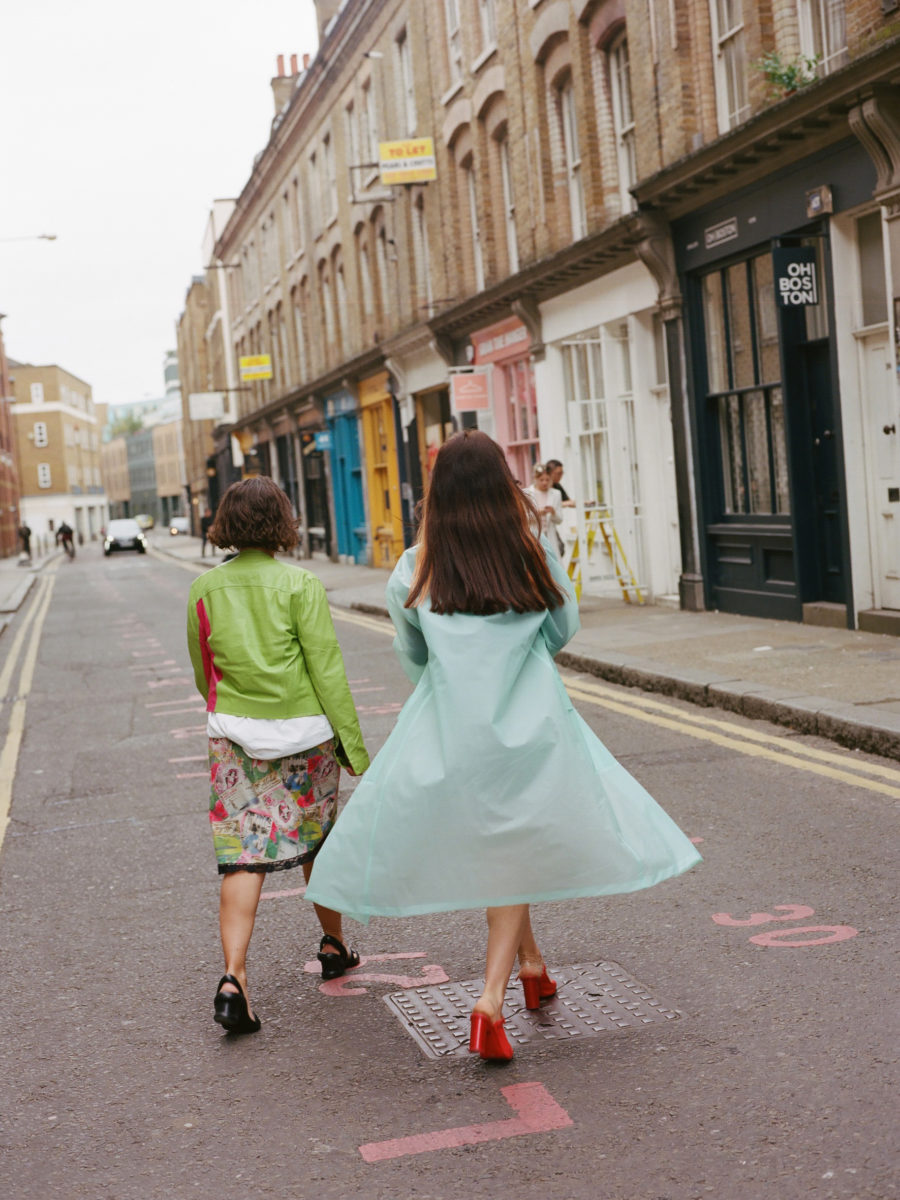
Something Curated: How did Babyface start?
Nellie Eden: Babyface began about four years ago. Initially it was not a business idea. It was pre-Instagram, and we felt that women couldn’t talk about their work seriously, so we wanted to create an online platform where they could do so. We started interviewing women about what they did and it gave them an opportunity to self-promote, which now seems hilarious because people self promote all the time.
The only prerequisite was that at the end of the interview, they would then recommend another girl. The community grew organically that way. And then we realised that it would be great if all these women would collaborate with each other and be paid for their creative endeavours. We contacted brands and other collectives, and then the platform became bigger than we initially perceived. Babyface became an agency of sorts. It changes all the time but we put ourselves somewhere between a creative agency and a creative studio. We provide lots of different services to lots of people.
SC: How many girls are now part of the Babyface collective?
Claire Burman: The community extends further than what we have on the site. We speak to hundreds of girls. We don’t look after anyone; we don’t represent them. That’s the biggest misconception about Babyface. We’re not a modelling or talent agency.
NE: The idea of owning anybody’s creative output, and charging an agency for that sounds crazy. This is not how we wanted to work. The girls you see on our website and social media are just a small portion of the people we speak to every day and work with. They are always in the back of our mind. We invite them to our parties, we socialise with them, and we love their work. But we constantly adapt and include new girls.
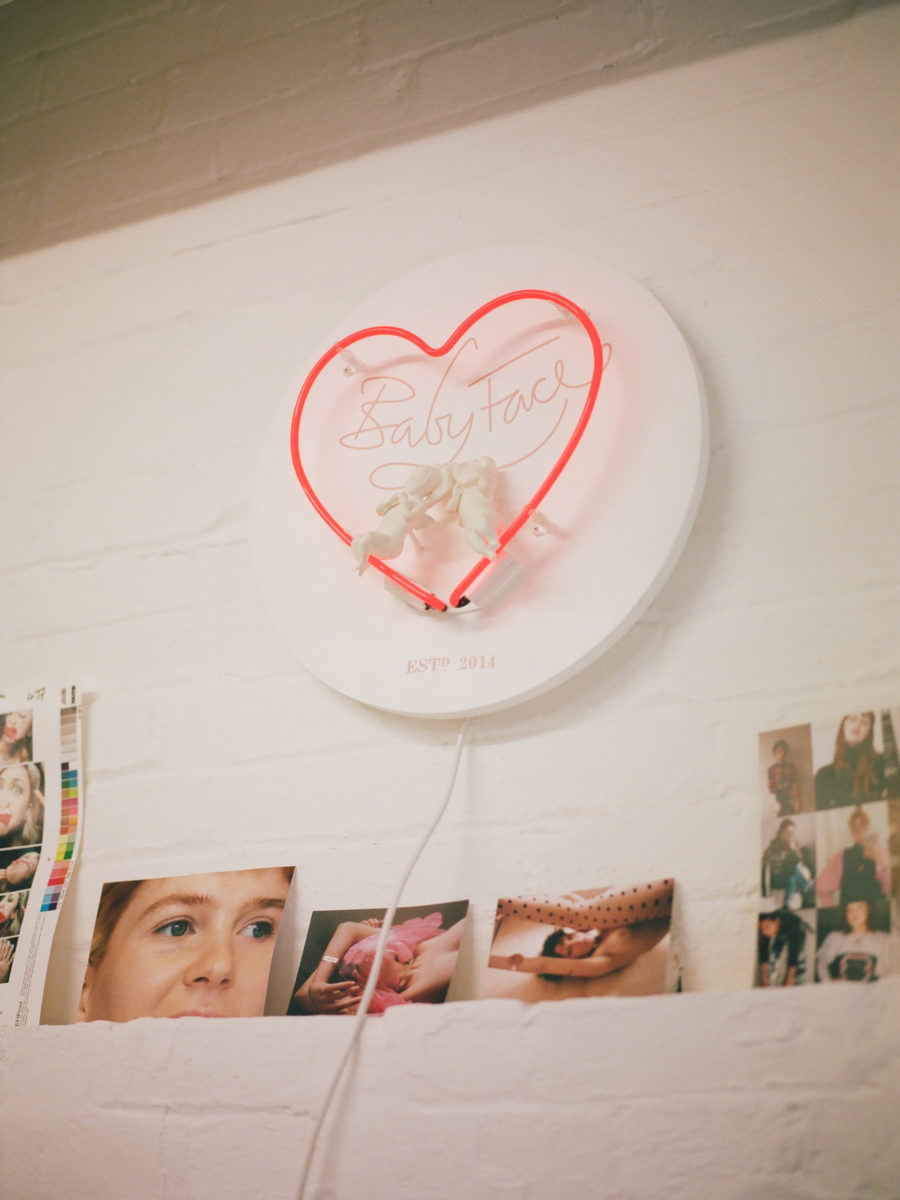
SC: What is it like to work with such a good friend?
NE: To be honest, it can be closer to a marriage than it is to a friendship. Sometimes you have to remember why you are together. There is a really deep love but then there are all these boring administrative things you have to do every single day together. Overcoming difficulties makes the relationship stronger but there are definitely days where you are like, “Oh my god, why are we doing this to our friendship?” You’ve been talking about spreadsheets for three weeks but it is definitely worth it.
CB: We are so lucky in the sense that we so rarely disagree when we’re making work together. For lots of people that’s a big problem. As with everything it is about finding the balance, and there are things you get with working with a friend you will never get from working with an employee you don’t know for example and vice versa. It doesn’t feel like work and that’s a really nice feeling. I never get Sunday dread, that doesn’t exist anymore.
NE: Also, our skillsets are so different and extremely complementary.
It is about understanding that you work in unique ways, maybe even different paces. Someone works best at nighttime and the other at 7 o’clock in the morning. You still have to trust each other that the work will get done. I would recommend to anybody going into business with their friend to find someone that has an opposite skillset. It is going to be testing but so much more rewarding.
CB: We both worked in the fashion industry before starting Babyface but we were doing very different jobs. I’ve always done events and production. I used to work for the British Council and Dazed. Nellie was a fashion journalist, writing for Refinery29 and other titles.
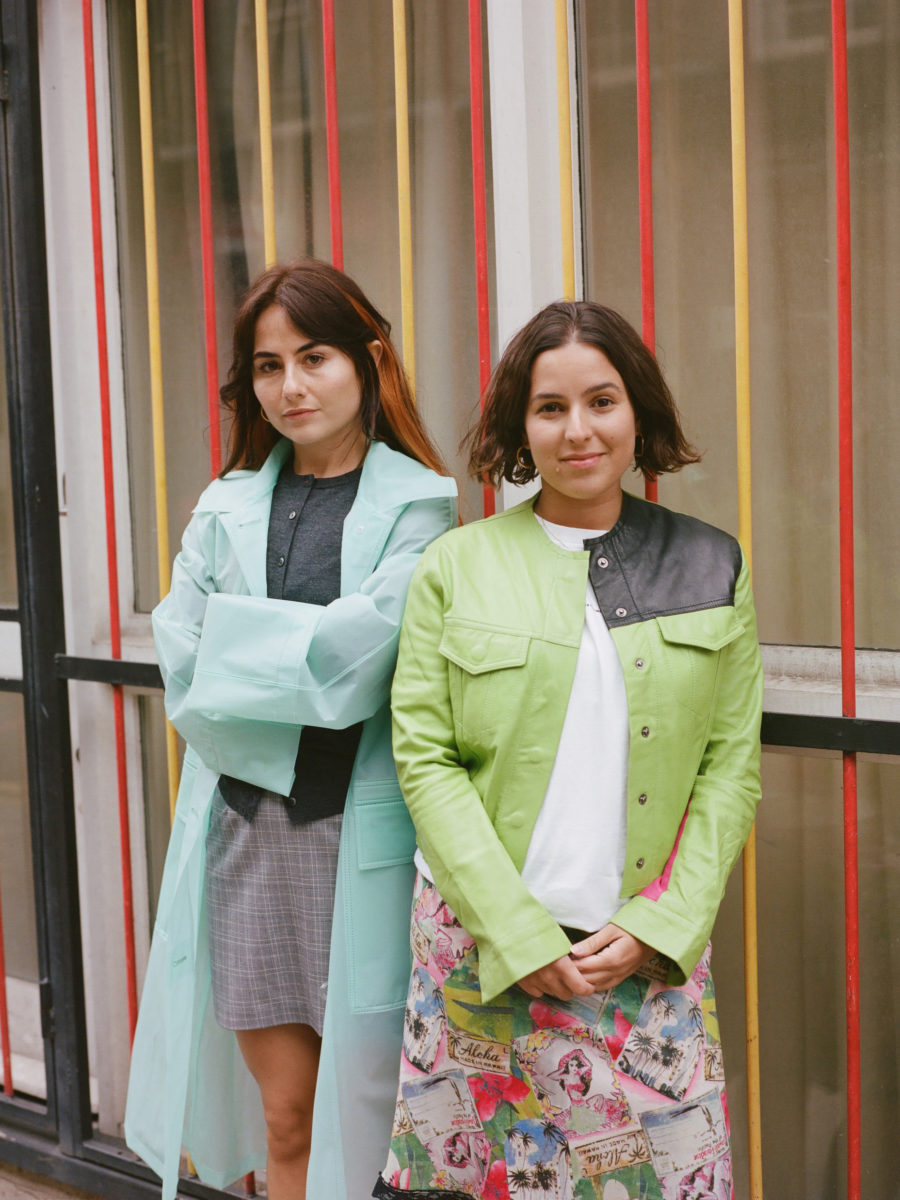
SC: Can you tell me a bit more about the projects you have recently been working on?
CB: We work with all our clients in different ways. With Glossier for example we have been doing creative strategy and production. For Marques’Almeida we recently did some programming and guest list curation, and for The Body Shop, we also do creative strategy, programming and event production. We do have an idea of the type of brands we like to work with but we also get people contacting us as well.
SC: Of all creative industries – are there some you would say are particularly difficult to break into?
NE: All industries are difficult to break into for women, and creative industries are not exempt from that critique. The glass ceiling still exists. Of course we felt we wanted to be part of the changing of the guard, and making progress. There are new systems of checks and balances, but there is still so much that needs to be done. When you are a young woman of colour trying to break into the fashion industry – getting into these circles is certainly more difficult than for a white woman from a middle class background. On the whole we wanted to offer more support for women, whatever their endeavour was.
When we talk about female creativity of course you can be a female creative and also a scientist, you can be creative and a business analyst. It is all about how you approach your work. We didn’t want to be exclusive in that sense either. Of course there has been progress, but that progress is only on the surface, it really needs to be systemic to insight change over a significant time period.
CB: Part of the satisfaction of Babyface is being able to lift people up using our own platform. People are constantly meeting at the events we organise. Or when we connect individuals with brands and other people and watch these relationships blossom, it is really satisfying.
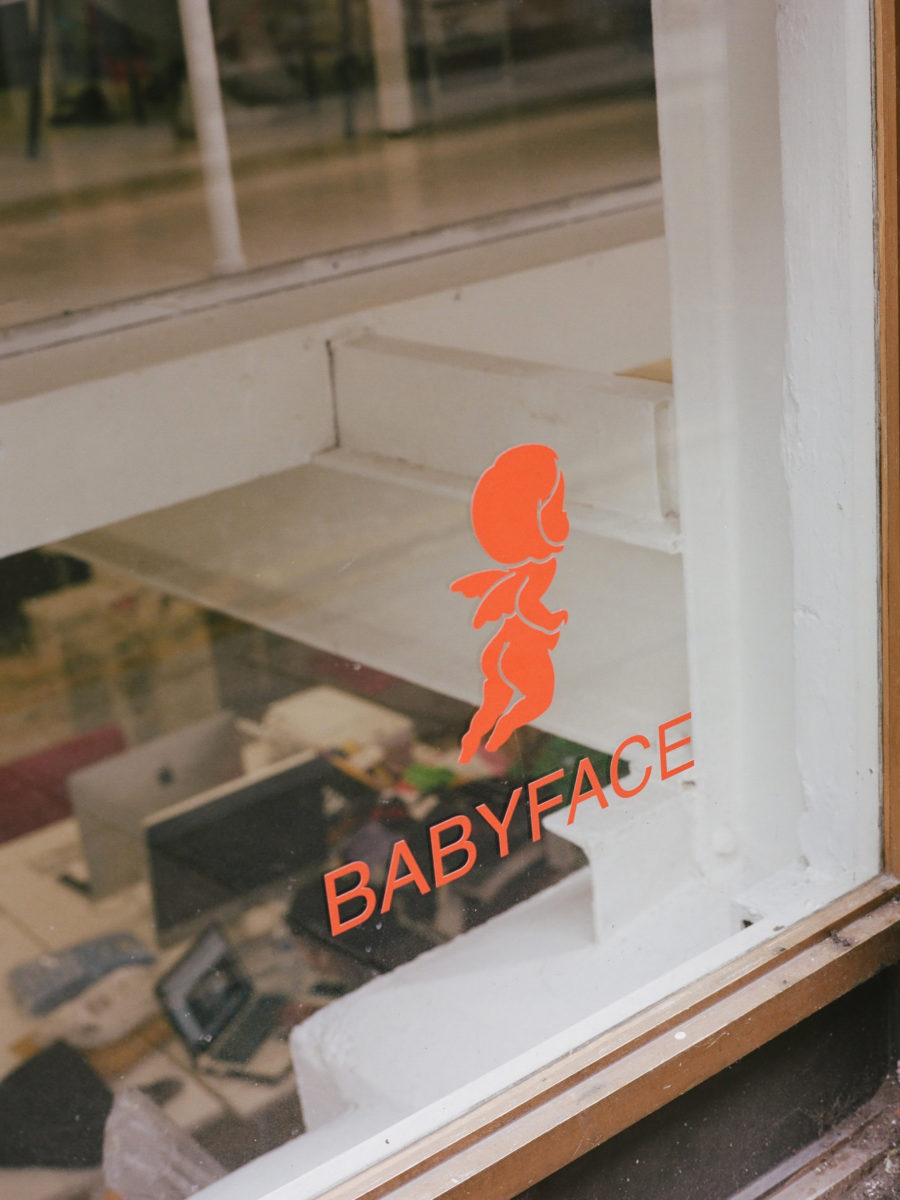
SC: What do you think of brands capitalising on feminism, to sell products for example?
CB: This is something we always struggle with. Fashion brands are being held accountable and rightly so. Because feminism is “trendy”, they release T-shirts with feminist logos. I don’t think this means a young girl buying these T- shirts is less of a feminist.
NE: Social media created this system of checks and balances for women that would otherwise have no influence. If a brand like Topshop released hoodies with a Maya Angelou quote, and the Instagram community says that’s not ok, then Topshop would have to pull the hoodies and that’s amazing. Obviously it is not as simple as, “You naughty brands, you are piggybacking on identity politics,” because that has always been the case but maybe some brands are doing it in a more clumsy manner.
If you are a brand and you want to align yourself with feminism, only do so if you have a history of supporting women. I am half tempted by these clickbait feminism groups that probably aren’t doing that much for the greater feminist cause. But the other half of me is like, “Fuck it, you are getting paid so do what you have to do as long as you are not putting any hate out there.” Everybody has to pay their rent. But please don’t ally yourself with a political movement.
SC: Are there any collectives you admire?
CB: There are so many: gal-DEM, The Wing, Pussy Palace, The Laundry, BBZ – Babes, Phoebe Lovatt’s WW Club, and also Chroma NY. I went to a Chroma NY event in New York recently and it was really great.
NE: There are so many different support networks. We know most of them personally. I hate it when somebody says, “Oh another girl gang.” But all these collectives are doing positive things and anybody saying that is scared of female domination/growth.
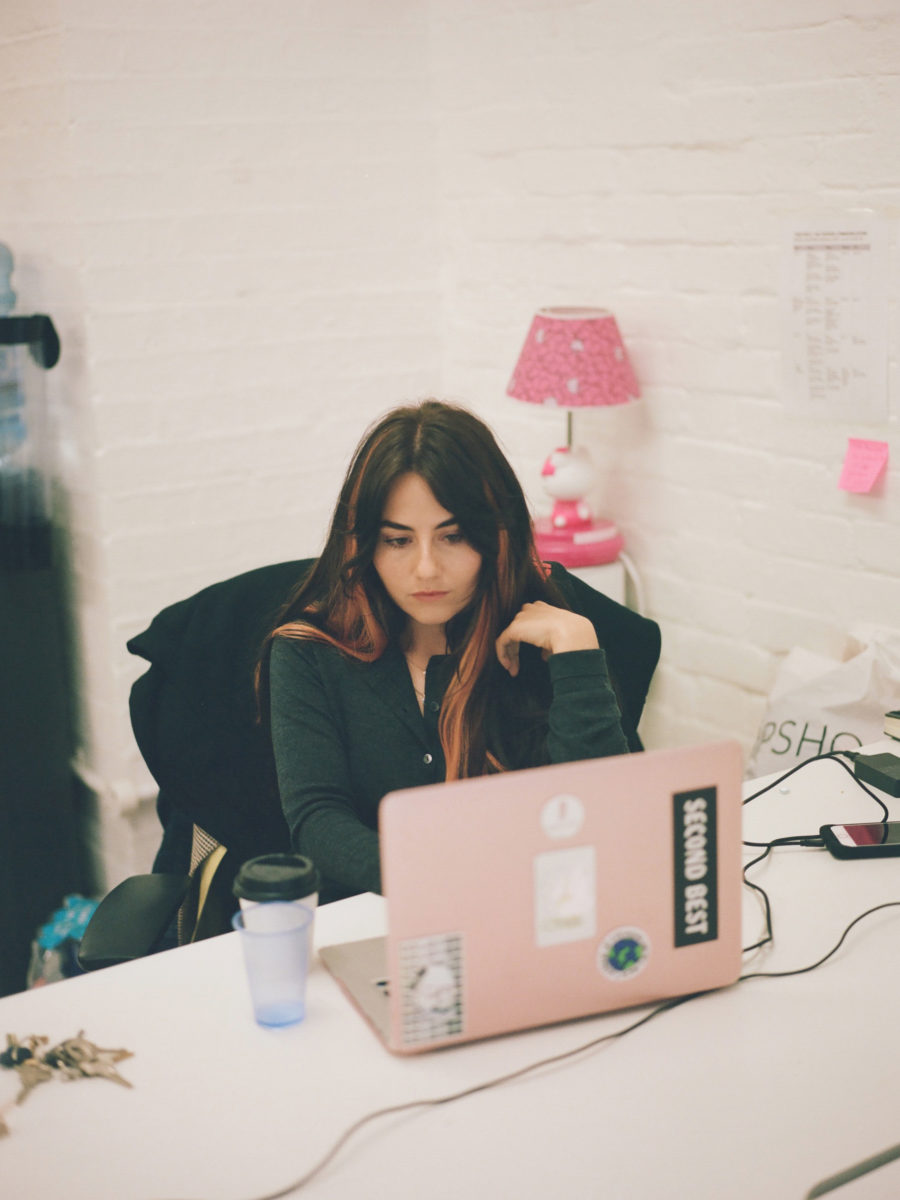
SC: Why did you choose to start Babyface in London?
CB: We both went to university in Brighton and London always felt like the next step. It wasn’t until we moved here that we came up with the idea.
NE: I was like no more white people with dreadlocks. London is amazing; there is so much attitude, pride, and individualism. My friends from abroad always say there is a palpable electricity in the air. It is not about being pretty or perfect. London is about digression and alternativism, and that’s been great for us.
CB: We also want to be talking to girls from other regional districts. We can get so London-centric sometimes and we want to avoid it. We are hopefully about to start regional events in Edinburgh, Bristol, and Brighton. The mindset of girls outside of London is so different.
NE: Outside of the UK, we would also love to do stuff abroad. We have an amazing community in the USA. But at the end of the day – whatever we do we are not tied to our desk in London.
SC: Do you have any favourite art spaces or cultural venues in London?
NE: Tate Britain, V&A, ICA, Prince Charles cinema, all of London’s parks.
CB: Somerset House, Kew Gardens, Greenwich Observatory.
SC: Do you have a favourite restaurant in London?
NE: Ciao Bella, Mangal, Kulu Kulu Sushi, The India Club, Salieri, Creams.
CB: Duck Soup in Soho, Captain Corelli in Battersea.
Interview by Caroline Astaes | Photography by Ana Cuba